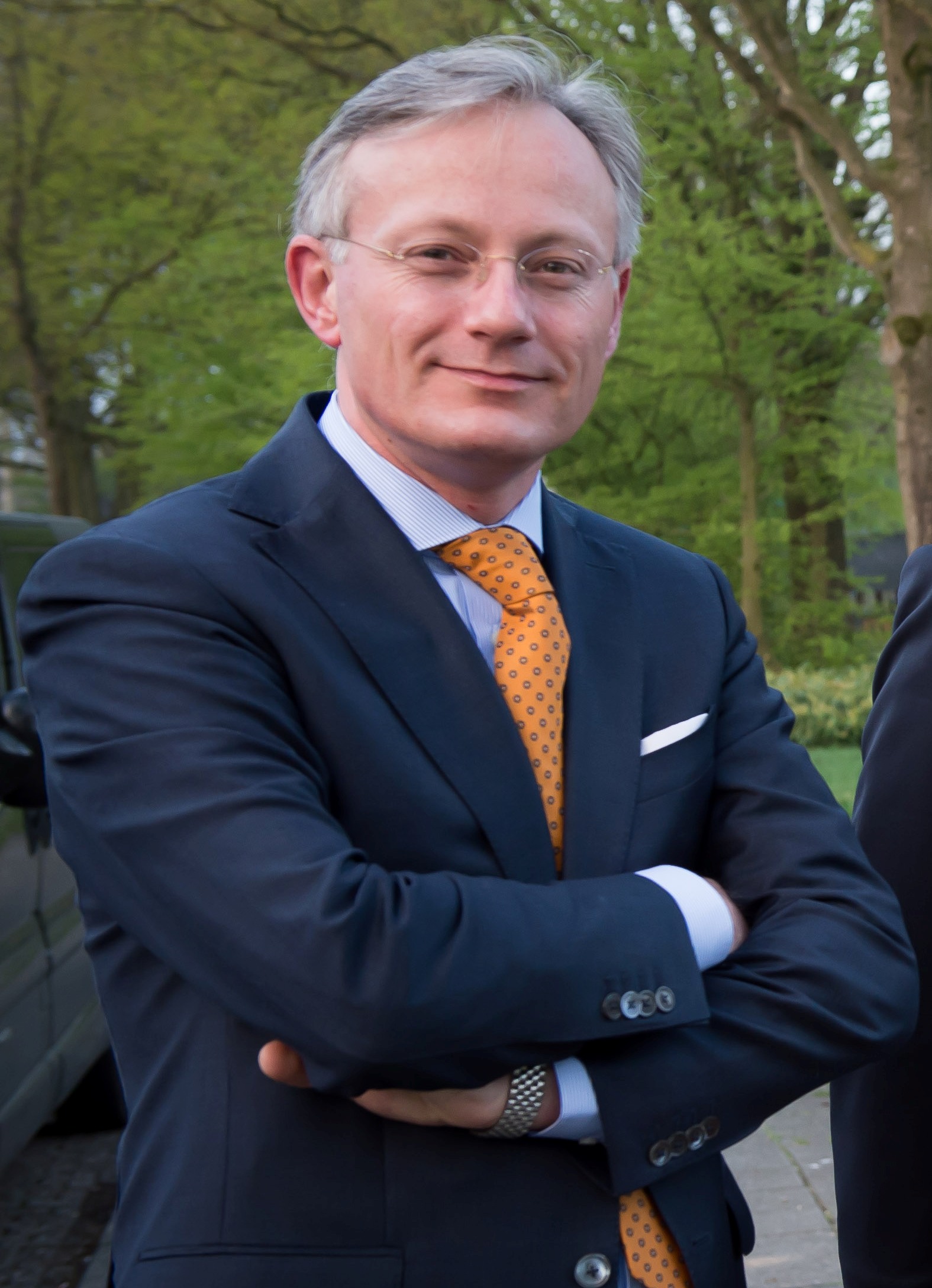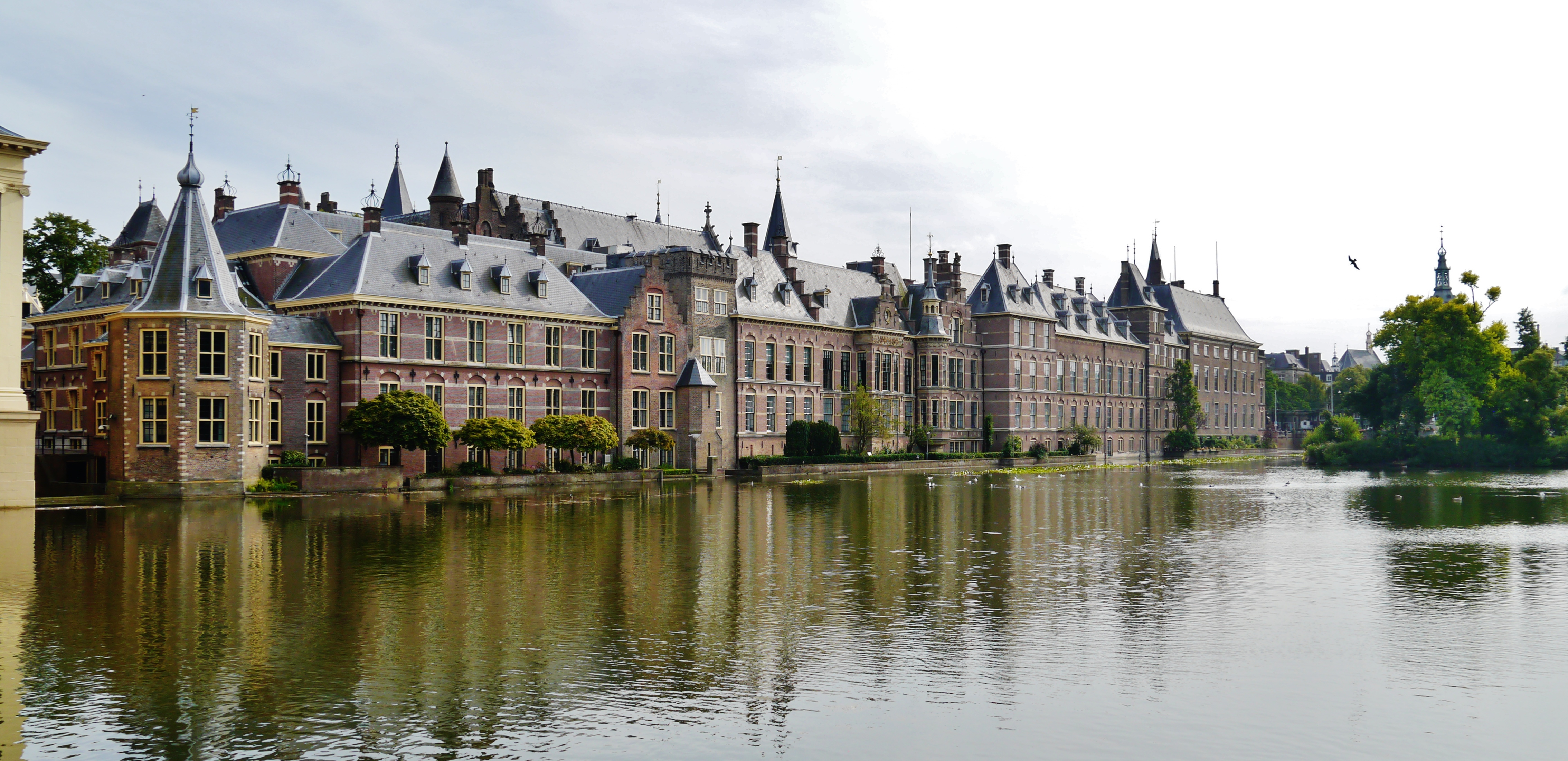|
1989–1990 Dutch Farmers' Protests
The 1989–1990 Dutch farmers' protests (), for want of an unambiguous official name also referred to as the Farmers' Revolt (), was a series of protests by Dutch farmers of arable land. Starting locally in February–March 1989 and culminating in nationwide demonstrations in February–March 1990, the protests were a response to changes in government agricultural policy beginning in the mid-1980s. Background Under the agriculture ministership of Sicco Mansholt, the price that arable farmers in the Netherlands received for cereal grain (in particular wheat) was kept artificially high. Under Gerrit Braks, who preferred to invest in pig farming, this standard was abandoned. Partly due to the import of cheap grain from abroad, the high grain price became unsustainable. In addition, the European Union had to raise billions annually to buy up surpluses. To be able to compete on the world market and maintain a position of competitiveness, western European agriculture had to shift its ... [...More Info...] [...Related Items...] OR: [Wikipedia] [Google] [Baidu] |
Barricade
Barricade (from the French ''barrique'' - 'barrel') is any object or structure that creates a barrier or obstacle to control, block passage or force the flow of traffic in the desired direction. Adopted as a military term, a barricade denotes any improvised field fortification, such as on city streets during urban warfare. Barricades also include temporary traffic barricades designed with the goal of dissuading passage into a protected or risk, hazardous area or large slabs of cement whose goal is to prevent forcible passage by a vehicle. Stripes on barricades and panel devices slope downward in the direction traffic must travel. There are also pedestrian barricades - sometimes called bike rack barricades for their resemblance to a now obsolete form of bicycle stand, or police barriers. They originated in France approximately 50 years ago and are now used around the world. They were first used in the U.S. 40 years ago by Friedrichs Mfg for New Orleans's Mardi Gras parades. ... [...More Info...] [...Related Items...] OR: [Wikipedia] [Google] [Baidu] |
Kommerzijl
Kommerzijl (; ), until the end of the 17th century called , is a linear village in the municipality of Westerkwartier in the province of Groningen in the Netherlands, located on the Kommerzijlsterdiep, which continues after the village as and flows into the . To the west of the village lies the and to the east the . As of 2021, Kommerzijl had a population of 505. Etymology Until the middle of the 17th century, the name was used for zijl and village. The name ''Kommerzijl'' appears for the first time in 1602. The suffix ''-zijl'' refers to the lock Lock(s) or Locked may refer to: Common meanings *Lock and key, a mechanical device used to secure items of importance *Lock (water navigation), a device for boats to transit between different levels of water, as in a canal Arts and entertainme ... () where the village originated. There are two explanations for the stem ''kommer-'': It could refer to the ''kom'' ('harbour') behind the dike, where the ships were docked or it could ... [...More Info...] [...Related Items...] OR: [Wikipedia] [Google] [Baidu] |
Flevoland
Flevoland () is the twelfth and newest province of the Netherlands, established in 1986, when the southern and eastern Flevopolders, together with the Noordoostpolder, were merged into one provincial entity. It is in the centre of the country in the former Zuiderzee, which was turned into the freshwater IJsselmeer by the closure of the Afsluitdijk in 1932. Almost all of the land belonging to Flevoland was reclaimed in the 1950s and 1960s while splitting the Markermeer and Bordering lakes from the IJsselmeer. As to dry land, it is the smallest province of the Netherlands at , but not gross land as that includes much of the waters of the fresh water lakes (meres) mentioned. The province had a population of about 445,000 as of January 2023 and consists of six municipalities. Its capital is Lelystad and its most populous city is Almere, which forms part of the Randstad and has grown to become the seventh largest city of the country. Flevoland is bordered in the extreme nort ... [...More Info...] [...Related Items...] OR: [Wikipedia] [Google] [Baidu] |
Binnenhof
The Binnenhof (; ) is a complex of buildings in the city centre of The Hague, Netherlands, next to the Hofvijver (Court Pond). It houses the meeting place of both houses of the States General of the Netherlands, as well as the Ministry of General Affairs and the office of the Prime Minister of the Netherlands. Built primarily in the 13th century, the Gothic castle originally functioned as residence of the counts of County of Holland, Holland and became the political centre of the Dutch Republic in 1584. Together with the Buitenhof (The Hague), Buitenhof it is ranked among the Top 100 Dutch heritage sites. The Binnenhof is among the oldest parliament buildings in the world still in use. History Comital period Counts of Holland Little is known about the origin of the Binnenhof. Count of Holland Floris IV, Count of Holland, Floris IV purchased the grounds of the Binnenhof in 1229 from and built a hunting lodge. Despite Floris IV's purchase, his successor William II of Holla ... [...More Info...] [...Related Items...] OR: [Wikipedia] [Google] [Baidu] |
Groningen (province)
Groningen ( , ; ; ; ) is the northeasternmost provinces of the Netherlands, province of the Netherlands. It borders on Friesland to the west, Drenthe to the south, the Germany, German state of Lower Saxony to the east, and the Wadden Sea to the north. As of January 2023, Groningen had a population of about 596,000, and a total area of . Historically the area was at different times part of Frisia, the Francia, Frankish Empire, the Holy Roman Empire, and the Dutch Republic, the precursor state of the modern Netherlands. In the 14th century, the city of Groningen became a member of the Hanseatic League. The provincial capital and the largest city in the province is the Groningen, city of Groningen (231,299 inhabitants). Since 2016, René Paas has been the King's Commissioner in the province. A coalition of GroenLinks, the Labour Party (Netherlands), Labour Party, ChristianUnion, People's Party for Freedom and Democracy, Democrats 66, and Christian Democratic Appeal forms the exec ... [...More Info...] [...Related Items...] OR: [Wikipedia] [Google] [Baidu] |
Lowboy (trailer)
A lowboy (low-loader in British English, low-bed in western Canada and South Africa or float in Australia and eastern Canada) is a semi-trailer with two drops in deck height: one right after the trailer (vehicle), gooseneck and one right before the wheels. This allows the deck to be extremely low compared with other trailers. It offers the ability to carry legal loads up to tall, which other trailers cannot. Lowboys are used to haul heavy equipment such as bulldozers and large industrial equipment. History The first lowboy trailer was invented in the 1920s; it featured a riveted gooseneck and solid rubber tires. The first detachable gooseneck trailer, referred to as an RGN (Removable goose neck), was invented in 1958. Types The lowboy trailer comes in several types, for a wide range of tasks. Some types are: * Fixed gooseneck (FGN): allows a longer deck length and has the lightest weight. These are lower trailers than normal, with low-profile tires, usually with drop ramps i ... [...More Info...] [...Related Items...] OR: [Wikipedia] [Google] [Baidu] |
National Police Corps (Netherlands)
The National Police Corps (), colloquially in English as Dutch National Police or National Police Force, is the centralised, national law enforcement agency of the Kingdom of the Netherlands, and its sole police force. Constituted under the provisions of the Police Act 2012 (Politiewet 2012), the Corps functions as a single and unified police organisation operating under the political authority of the Minister of Justice and Security (Minister van Justitie en Veiligheid). The National Police Corps is charged with the maintenance of public order, the enforcement of criminal law, the investigation and prevention of crime, and the provision of assistance in emergencies. It possesses general competence over the entire territory of the Netherlands and is vested with both administrative and judicial police powers. It is divided in ten regional units, two national units, the police academy, police services center, and national dispatch center cooperation. The law-enforcement purposes o ... [...More Info...] [...Related Items...] OR: [Wikipedia] [Google] [Baidu] |
Pieter Ter Veer
Pieter Klaas ter Veer (22 December 1944 – 11 December 2022) was a Dutch dairy farmer and politician. A member of the Democrats 66, he served in the House of Representatives from 1981 to 1982 and again from 1989 to 2002. Ter Veer died in Heemstede Heemstede () is a town and a municipality in the Western Netherlands, in the province of North Holland. In 2021, it had a population of 27,545. Located just south of the city of Haarlem on the border with South Holland, it is one of the richest ... on 11 December 2022, at the age of 77. References {{DEFAULTSORT:Veer, Pieter ter 1944 births 2022 deaths 20th-century Dutch farmers Democrats 66 politicians People from Zuidhorn Members of the House of Representatives (Netherlands) 20th-century Dutch politicians 21st-century Dutch politicians 21st-century Dutch farmers ... [...More Info...] [...Related Items...] OR: [Wikipedia] [Google] [Baidu] |
Democrats 66
Democrats 66 (; D66) is a social liberal and progressive political party in the Netherlands, which is positioned on the centre to centre-left of the political spectrum. It is a member of the Liberal International (LI) and the Alliance of Liberals and Democrats for Europe (ALDE). The name of the party refers to its year of foundation, 1966. Initially, its main objective had been to democratise the Dutch political system, but it developed a broader social liberal ideology over time. In the 1967 general election, the party won 7 out of 150 seats in the House of Representatives. No new party had ever gained that many seats before. The party was in government from 1973 to 1977, 1981 to 1982, 1994 to 2002, 2003 to 2006 and 2017 to 2024. It currently holds nine seats in the House of Representatives, five seats in the Senate and three seats in the European Parliament. D66 is especially popular among people who hold a university degree, and its voters are mostly concentrated i ... [...More Info...] [...Related Items...] OR: [Wikipedia] [Google] [Baidu] |
Government Budget
A government budget is a projection of the government's revenues and expenditure for a particular period, often referred to as a financial or fiscal year, which may or may not correspond with the calendar year. Government revenues mostly include taxes (e.g. inheritance tax, income tax, corporation tax, import taxes) while expenditures consist of government spending (e.g. healthcare, education, defense, infrastructure, social benefits). A government budget is prepared by the Central government or other political entity. In most parliamentary systems, the budget is presented to the legislature and often requires approval of the legislature. The government implements economic policy through this budget and realizes its program priorities. Once the budget is approved, the use of funds from individual chapters is in the hands of government ministries and other institutions. Revenues of the state budget consist mainly of taxes, customs duties, fees, and other revenues. Stat ... [...More Info...] [...Related Items...] OR: [Wikipedia] [Google] [Baidu] |



